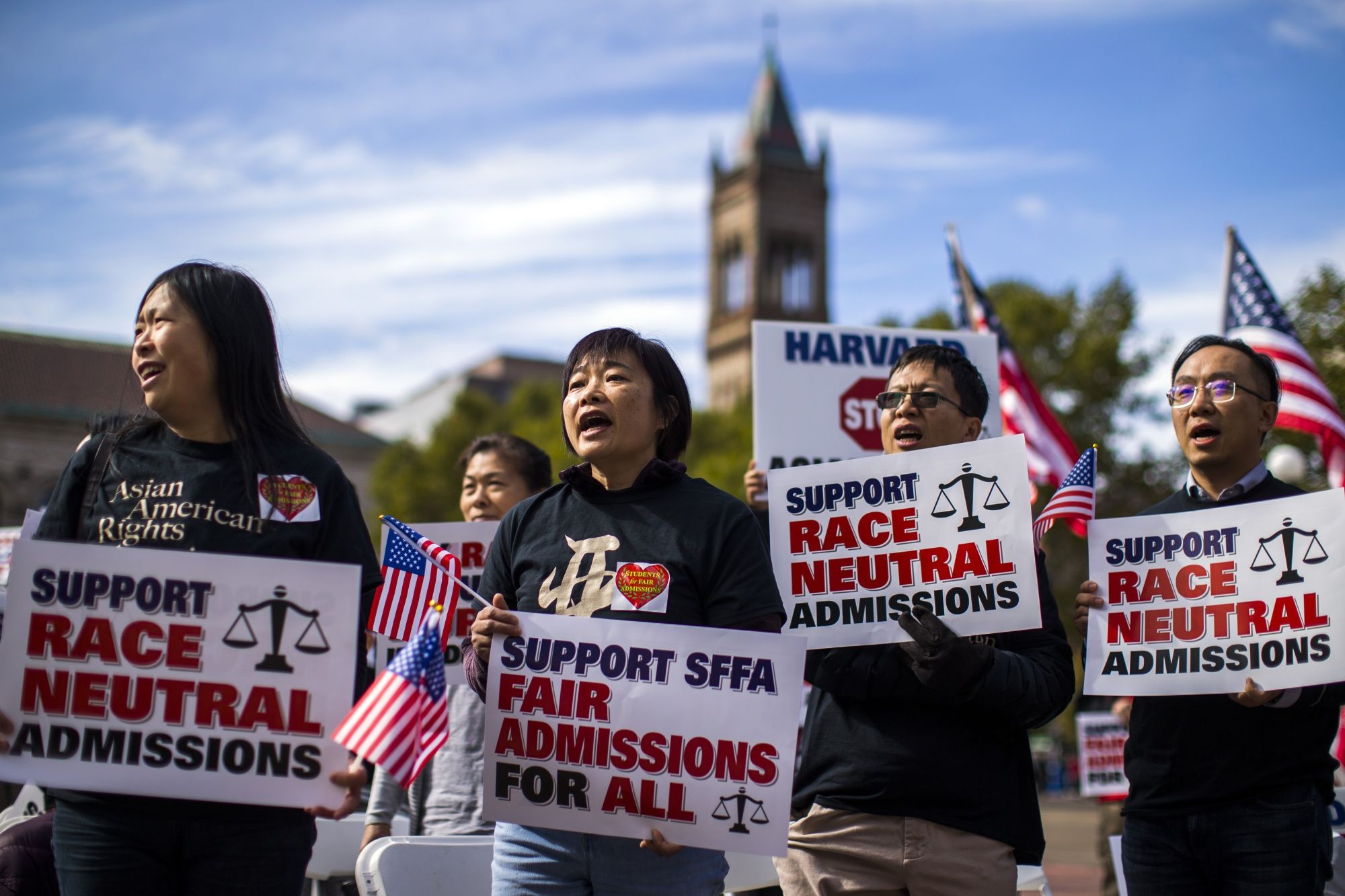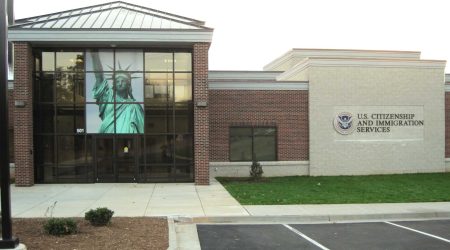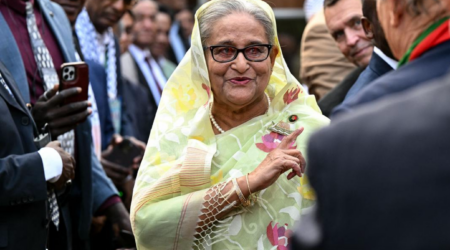By Neera Kuckreja Sohoni
Indian and Asian American students aspiring to get into US campuses have been facing an uphill climb due to race-based admission policies. On Oct. 31, their concerns reached the Supreme Court when it heard oral arguments in two cases challenging the race-conscious admissions programs of Harvard and North Carolina universities.
Attorneys representing the universities defended race-conscious admissions policies as lawful and necessary to achieve racial diversity.
Key arguments presented in favor of Affirmative Action include:
- Universities that have structured their admissions systems to fit affirmative action standards established by Grutter and invested heavily in Black Studies programs, scholarships, and professorships to promote diversity would be negatively impacted.
- Race-neutral alternatives have been unsuccessful. After banning race-conscious admissions in 1996, the University of California failed to enroll a sufficiently diverse student body. Underrepresented minority enrollment in fact dropped “50% or more at UC’s most selective campuses”.
- Racial cross-representation hybridizes and promotes a diverse culture of learning vital to “a healthy democracy.” A greater degree of classroom racial diversity the American Federation of Teachers suggests “is associated with a higher GPA at graduation.” Statewide bans on affirmative action, in contrast, have “led to a general decline in degree attainment for Black adults”, and worsened the ‘opportunity gap’ in education and income.
- Discrimination and underrepresentation inflict academic harm and affect all students. A study of Latino and Black students found “that experiences of discrimination were predictive of poor physical health, increased depression, poorer academic outcomes, and lower graduation rates.”
- There is no validity to the “mismatch theory” claiming that students of color are improperly matched to the academic rigor of the schools to which they are accepted on race-based grounds.
- Asian American Legal Defense and Education Fund criticizes SFFA for using Asian Americans as means to deny opportunities to other underrepresented minorities, and for overlooking that majority of Asian Americans recognize diversity’s benefits and accept that race-conscious admissions have not undermined their own advancement in enrolment and in leadership positions at colleges. The “strides the community has made in the Grutter era suggest that race-conscious admissions policies are not responsible for holding Asian Americans back.”
- Anti-Defamation League maintains that Harvard does not use race quotas as a determinative factor. Hence “it is false to claim any similarity between Harvard’s current admission policy and its discriminatory practices against Jewish applicants” in earlier decades.
- Biden administration and Democrats strongly support racial equality which aligns with their notions of racial equity. They contend that Congress did not intend Title VI to act as a barrier to race-conscious admissions, and therefore it has enacted several laws promoting higher education opportunities for underrepresented minorities.
Urging a colorblind interpretation of the Constitution, opponents of race-based admissions argue that racial group preferences are inconsistent with equality and individual rights, and result in stigma, division, resentment, and experiences of being dehumanized. Genocides in Nazi Germany and Rwanda exemplify monstrous outcomes of the official use of racial classifications.
Principal objections to Race-based affirmative action include:
- It is inconsistent with the equal protection clause of the Constitution. Because a tilt favoring one race amounts to a penalty against other races, it makes laws and policies dividing people by race instantly suspect.
- Affirmative admissions policies harm Asian-American students and others, who are unfairly judged by their race rather than by individual merit. Under the Fourteenth Amendment and Title VI, those policies cannot stand.
- Rejecting race-neutral alternatives on grounds they would fail to ensure within a student body a ‘specified percentage of a particular group’ amounts to racial balancing, which is patently unconstitutional.
- Harvard’s affirmative action as currently applied discriminates against Asian Americans similar to its discrimination against Jews in the 1920s-1930s, suggesting a historical pattern. Even the racial and ethnic categories Harvard employs in its admissions process are “arbitrary, imprecise, over- and under-inclusive, and are not narrowly tailored to achieve educationally beneficial diversity”.
- Asian American Coalition for Education and Asian American Legal Foundation contend that “Harvard maintains its racial balances by taking the discrimination an insulting step further”. Using the highly subjective ‘Personal’ rating as an important component of an applicant’s overall admissions score, it establishes “a hierarchy of races”, with blacks at the top, followed by Hispanics, then Whites, with Asian Americans at the very bottom.
- It is false to attribute diversity and the broadening of campus discourse to affirmative policies. “Unsupported empirical assumption that racial preferences would promote a more robust exchange of ideas has turned out to be tragically wrong.” In fact, race-based admissions have resulted in superficial diversity, fostered the opposite phenomenon of groupthink, and allowed legal discrimination against students with conservative views.
- As there is no substantive difference between the educational benefits of diversity for 18-year-olds and K-12 students, applying for race-based admission singularly to higher education makes no sense.
- The assumption that “one racial group is different from other racial groups” in talent, experience, and background “solely because of their skin color” is not only “unpersuasive” and “antithetical to the Constitution’s guarantee of Equal Protection”, but is humiliating and immoral. Project 21 – a national leadership network for Black conservatives contends that affirmative action stigmatizes minority students for “the rest of their lives.”
That last is the most compelling reason for Grutter’s reversal. Clearly, race-based selection whether in college admission, job, or sports team recruitment, unfairly devaluates Black applicants’ merit. Such a negative perception did not spare even the appointment of Justice Ketanji Jackson to the court. Biden’s unhealthy early announcement that his nominee would have to be a ‘woman of color’ ended in unkindly belittling Ketanji’s credentials, which she and others must feel she earned with her own sweat and talent, independent of and despite her race.
Meanwhile, Indian students – born here or on student visas who intend to study here would be sitting on tenterhooks worrying as to which way the court will rule, and to what extent their own fate and future will be impacted by the court’s forthcoming ruling.
Whatever the ruling, as part of the Asian American community hailed as a ‘model minority’, Indian students will be expected to respect the court’s opinion, and to offer any criticism of the ruling on substantive grounds, not from a feeling of outrage. They will do well to eschew any kind of violence in demonstrating their anger and disappointment should the ruling reinforce the validity of affirmative action, and equally, to refrain from boisterous “in your face” celebration should the court rule in favor of ending race-based admissions.

Neera Kuckreja Sohoni is a published author based in California. A Ph.D. in Economics from Pune University, she was an affiliated research scholar at the Institute for Research on Women and Gender at Stanford University.
Disclaimer: The views expressed are not necessarily those of The South Asian Times












